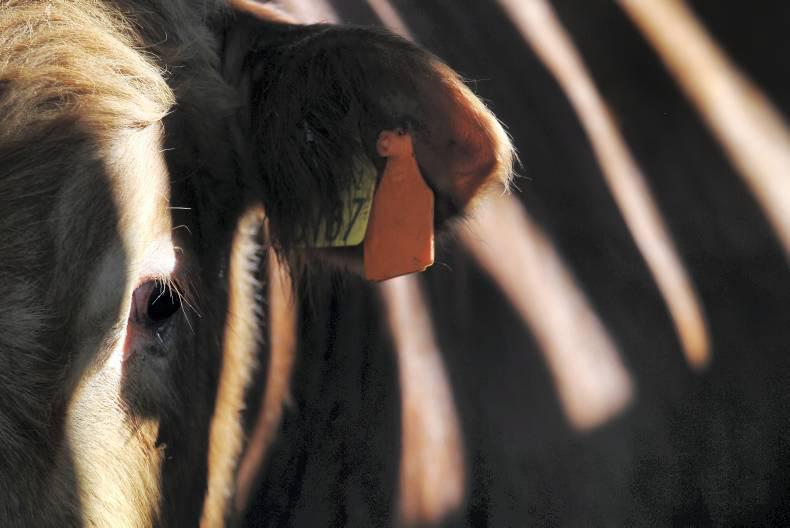The European Commission wants to cut the Irish beef herd by 35%, a report obtained by the Irish Farmers Journal shows.
The report, which looks at greenhouse gas (GHG) emissions and what each European member state needs to address 2030 emissions targets and was carried out by the Comission's Joint Research Centre, says that as well as cutting the beef herd by a third, Ireland should also reduce its dairy herd by 5% to meet emissions targers, according to one set of projections.
The report states: “Within the livestock sector, the herd size of beef meat activities is most affected in all scenarios with mandatory targets for GHG reduction, because reductions of other activities, for example dairy cows, would entail higher economic losses per unit of emission savings.”
Should such a scenario be implemented, the move would see the Irish beef herd contract to levels last seen in the 1980s. The reduction of the Irish beef herd by such a size would lead to a 19% decrease in our beef production output.
A 5.5% reduction in the dairy herd would lead to a 5% reduction in our dairy output. At a time when we are growing our beef and dairy productions in line with Food Harvest 2020 and Agri Food 2025 strategies, it is difficult to see how Irish leaders will accept these projections.
“ICOS finds these projections immensely concerning, and they show how some aspects of European policy are in conflict,” Conor Mulvihill, European affairs director at ICOS, said.
“On the one hand, we have the Commission’s plans for the EU agri economy strive to meet the global food security challenge of feeding nine billion people. On the other, we have Commission environmental plans in which their own models envision wholescale reductions of the EU livestock herds,” Mulvihill added.
In October 2014, An Taoiseach Enda Kenny secured special concessions for Ireland on emissions targets due to our dependence on agriculture. There is now pressure on Irish officials to address European Commission concerns before the 2015 United Nations Climate Change Conference in Paris in December where legally binding climate targets will be set.
IFA president Eddie Downey said the report “highlights the need for the Irish Government to deliver on the outcomes agreed at the heads of states meeting in Brussels last year, which stated that agriculture must be treated differently when addressing the climate challenge”.
Downey added: “The multiple objectives of the agriculture and land use sector, with their lower mitigation potential, should be acknowledged, as well as the need to ensure coherence between the EU food security and climate change objectives.”
Failure to meet emissions targets would result in fines of millions of euro for Ireland. Mulvihill said Ireland has developed a coherent and workable environmental programme and the Commission report makes a “mockery” of the work carried out.
“Irish Agriculture is making great strides to embrace the environmental agenda, and we are constantly attempting to build the connection between sustainability and profitability, to foster support in the farming community,” Mulvihill said.
“But ill-founded targets like this make a mockery of those attempts. All we will see is production moving outside the EU, to areas of the world whose GHG output per kilogram of product produced are vastly inferior to what we are doing in Ireland, totally negating the policy, while decimating our agricultural economy,” he concluded.






 This is a subscriber-only article
This is a subscriber-only article










SHARING OPTIONS: